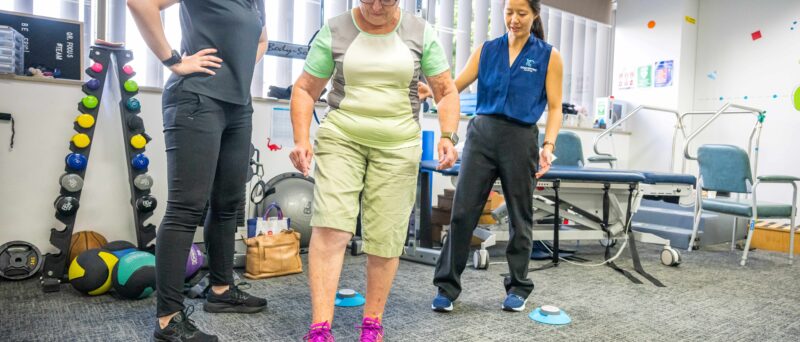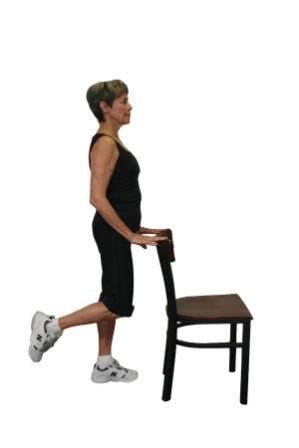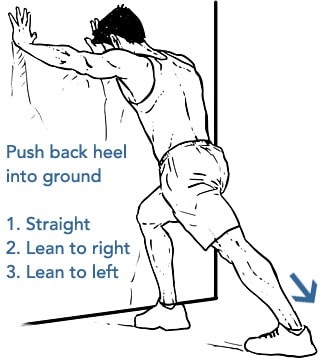Start Exercising ASAP!
Your muscles weaken as you age for a number of reasons, including poor nutrient intake, hormonal changes and most importantly, a lack of physical activity.
Balance is intricately related to the strength of your muscles, in particular, your buttock or gluteal muscles.
A really easy exercise that you can begin with, is a single leg stance.
Standing in front of a support such as a stool or a bench, simply lift one leg up in the air about 10cm off the ground, while you maintain support with the opposite leg. Hold that position for 30 seconds, as you get stronger and more balanced, increased the time spent on a single leg.
Get Your Eyes Checked
This is an easy one, feel more steady on your feet by making sure you can actually see your feet! If you can’t see things clearly, or if things seem blurry, your brain can miscalculate distances and this can cause a fall.
Have Your Medications Reviewed
Medications can make you feel unsteady on your feet for a number of reasons:
- Drug interactions can cause you to feel unsteadiness
- Medications often make you feel drowsy, reducing your reaction time
- Medications can also make you feel dizzy.
Therefore it is important to consult your GP and specialists about all of the medication you are on and whether it could be causing you to feel unsteady.
Have Your Lower Back Assessed
The easiest way to understand how your lower back affects your balance is like this. Your spinal cord is like the electrical cable that travels into your muscles. If the electrical cable isn’t working right, then the signals won’t flow to the muscles correctly, thereby causing them to work sub-optimally. See a good physiotherapist and they will be able to tell you if there are any concerns.
Wear The Right Footwear
This is another straightforward thing you can do immediately to make you feel more steady on your feet. Flat, supportive footwear will ensure you make good contact with the ground at all times and minimize the likelihood of a fall.
Review Your Home Environment
The recommendation is to do a thorough analysis of your home environment, identify all potential risks and then systematically make your way through the house and reduce them. Remember – Prevention is better than a cure.
Have Your Blood Pressure Checked
Low blood pressure, particularly involving different postural positions such as laying down on your back and then sitting up quickly, can cause dizziness. If you have experienced this and you feel unsteady on your feet and light-headedness, we recommend you chat with your GP about your blood pressure.
Stretch Your Calf Muscles
This might seem like an odd point, but if your calf muscles are tight, then they will restrict your ability to lift your toes off the ground properly and this change in walking pattern will make you feel unsteady. To stretch your calf muscles, simply stand in a step-stance position, hold the stretch for 30 seconds, repeat 5 times each leg and perform twice daily.
See Your GP About Inner Ear Dysfunction
If you’re feeling unsteady on your feet you may want to have your inner ear checked out. Particularly if this unsteadiness has come on fairly rapidly, or if you have associated blocked ears/sore throat.
There are small sensors within your ear that maintain your balance if any of those sensors receive abnormal signals, then your balance and steadiness can be thrown off.
Participate In A Falls And Balance Program
The best way to feel more steady is to practice being unsteady on your feet in a controlled environment. That way, you will gradually feel stronger and more balanced in every environment. There is a huge amount of research that shows participation in a balance program drastically reduces your likelihood of a fall and improves your balance.




